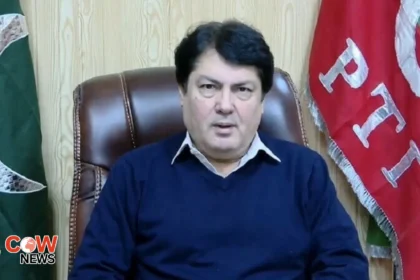The proposed acquisition of Telenor Pakistan and Orion Towers by Pakistan Telecommunications Limited (PTCL) has ignited significant debate within the telecom industry, with key stakeholders expressing serious concerns over potential monopolistic practices and spectrum allocation. As the Competition Commission of Pakistan (CCP) holds its fourth hearing regarding this merger, the implications for market competition and consumer choice are coming into sharper focus.
- Background of the Acquisition
- The Role of Spectrum in Telecommunications
- Concerns Raised by Industry Stakeholders
- Spectrum Allocation Issues
- Calls for Regulatory Oversight
- The CCP’s Position
- Legal Considerations
- Market Dynamics and Competitive Landscape
- Current Players in the Market
- Future Implications for Consumers
- The Road Ahead
Background of the Acquisition
PTCL’s intention to acquire 100% of Telenor Pakistan has raised alarms among competitors, particularly Zong, which highlights the potential for monopolistic control in an already competitive landscape. The merger, if approved, would result in the new entity controlling approximately 34.4% of the total allocated spectrum in Pakistan’s retail mobile telecommunications market, significantly impacting market dynamics.
The Role of Spectrum in Telecommunications
Spectrum, the range of electromagnetic frequencies used for transmitting data, is a finite resource crucial for mobile network operators (MNOs). It directly influences an operator’s ability to provide services, determine coverage areas, and ensure service quality. Each frequency band has distinct characteristics that affect its efficiency and effectiveness in delivering mobile services.
With limited availability, spectrum allocation becomes a key battleground in the telecommunications industry. Companies with larger spectrum holdings can offer better coverage and higher quality services, leading to increased market power. This reality underscores the importance of regulatory oversight in preventing anti-competitive behavior.
Concerns Raised by Industry Stakeholders
During the recent hearing held by the CCP, Zong, represented by CM Pak’s Asad Ladha, voiced strong objections regarding the proposed merger. Ladha underscored the importance of carefully analyzing spectrum allocation and its potential impacts on market competition. He warned that the merger could lead to an unacceptable concentration of market power, which would ultimately harm consumers and other operators.
Spectrum Allocation Issues
Ladha’s concerns were echoed by other industry players, who highlighted the scarcity of spectrum as a significant challenge. With the post-merger entity (referred to as “MergerCo”) potentially holding a dominant share of the spectrum, the implications for competition are serious. CM Pak’s analysis indicated that the new entity would hold 23.46% of the spectrum in the highly sought-after 900 MHz band, which is particularly advantageous for coverage in regions like Azad Jammu and Kashmir (AJK) and Gilgit-Baltistan (G-B).
The Director General of Licensing at the Pakistan Telecommunication Authority (PTA), Amer Shahzad, confirmed the current lack of available spectrum in the 900 MHz band, emphasizing that all frequencies are already allocated to various Cellular Mobile Operators (CMOs). While he noted that new spectrum might become available by 2025, the immediate future seems to favor the combined entity, raising alarms about potential anti-competitive practices.
Calls for Regulatory Oversight
Ladha also proposed the implementation of ancillary restrictions to mitigate the risks associated with the merger. These restrictions could include non-compete clauses that limit PTCL’s operations post-merger, ensuring that the company does not engage in practices that would harm competition. Such measures could help preserve market diversity and protect consumer interests.
In response, PTCL’s representative, Rahat Kaunain, downplayed immediate competition concerns, suggesting that the merger would not lead to significant market disruption. However, the proposal for additional regulatory measures indicates a recognition of the complexities surrounding market dominance.
The CCP’s Position
The CCP’s ongoing review of the merger is focused on assessing potential market power concentration and its effects on competitive dynamics within the telecommunications sector. The CCP’s statement following the previous hearing indicated that PTCL’s acquisition could substantially lessen competition, thereby entrenching PTCL’s already dominant market position.
The commission has previously recognized PTCL as a significant market power (SMP) operator in key areas, including wholesale domestic leased lines and retail local loop fixed-line telecommunications. This designation further complicates the merger, as any action that enhances PTCL’s market power could be seen as detrimental to the competitive landscape.
Legal Considerations
Barrister Ambreen Abbasi, a senior legal advisor to the CCP, probed into existing PTA policies regarding the divestiture of spectrum assets during the hearing. Shahzad referenced the ‘Spectrum Sharing Policy,’ designed to optimize spectrum utilization and alleviate capacity issues, showcasing the regulatory framework governing these critical resources.
The legal and regulatory complexities surrounding spectrum allocation and ownership make it imperative for the CCP to thoroughly analyze the implications of this merger. Ensuring that spectrum is equitably distributed among operators is crucial for maintaining a competitive environment that ultimately benefits consumers.
Market Dynamics and Competitive Landscape
As the telecommunications market evolves, understanding the implications of mergers and acquisitions becomes increasingly important. The competitive landscape in Pakistan is already marked by a few dominant players, and the proposed merger could exacerbate these dynamics, leading to a less competitive market overall.
Current Players in the Market
1. PTCL: As a dominant player in the market, PTCL has significant influence over wholesale and retail telecommunications. The acquisition would only bolster its position.
2. Zong: Representing a formidable competitor, Zong’s concerns reflect broader industry apprehensions regarding market fairness and competition.
3. Mobilink: Another key player in the sector, Mobilink’s strategies will likely be influenced by the outcome of the PTCL-Telenor merger.
4. Ufone: As a subsidiary of PTCL, Ufone’s operations will be directly affected by this consolidation.
Future Implications for Consumers
The potential increase in market concentration raises serious concerns about pricing, service quality, and innovation. With fewer competitors in the market, consumers could face higher prices and diminished service quality, as companies may lack the incentive to innovate or provide exceptional customer service.
Moreover, the integration of services and resources among a limited number of players could stifle competition, leading to a less dynamic market. The telecommunications sector thrives on competition, which drives improvements in technology, customer service, and pricing.
The CCP has adjourned the hearing until October 24, 2024, allowing time for further deliberations and discussions among stakeholders. As the review progresses, it is crucial for all parties involved to recognize the broader implications of the merger beyond just the companies involved.
The outcomes of the CCP’s assessment will have far-reaching consequences for the telecommunications landscape in Pakistan. By prioritizing consumer interests and ensuring competitive practices, the CCP can help safeguard the market’s integrity and foster a healthier business environment.
The Road Ahead
Moving forward, stakeholders will be closely watching the developments in this merger review. The discussions will not only shape the future of PTCL and Telenor Pakistan but will also set important precedents for how mergers and acquisitions are approached in the telecommunications sector.
In a rapidly evolving industry, it is essential for regulatory bodies like the CCP to remain vigilant and proactive in protecting competition and ensuring that consumer interests are front and center in any significant market changes.
#Telecom #Pakistan #PTCL #Telenor #Merger #CompetitionCommission #SpectrumAllocation #Telecommunications







